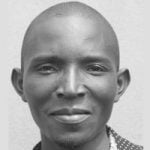Veteran politician and former diplomat Vernon Mwaanga has warned that abandoning the national dialogue process would be dangerous as many critical issues will remain unresolved.
In a statement, Mwaanga expressed disappointment at the stalled dialogue process after President Edgar Lungu and his UPND counterpart Hakainde Hichilema met under the auspices of the Church, to discuss the road map process.
Mwaanga insisted that dialogue remained important for a growing democracy like Zambia.
“It would be a horrendous mistake for our political leaders to abandon dialogue! In this 21st Century, there has been recourse to dialogue among nations, leaders and people all over the world. I have been a passionate advocate of dialogue throughout my life and even during the struggle for Independence, when I was regional secretary of UNIP for Choma and Namwala districts, I advocated dialogue (between) UNIP and ANC, which was the dominant party in Southern Province at the time. Because of my dialogue approach, there was very little violence between UNIP and the ANC in areas of my involvement,” Mwaanga recalled.
“My involvement in the peace and dialogue processes on behalf of Zambia in Angola, Mozambique, Namibia, Guinea Bissau, Zimbabwe, the DRC and South Africa, has convinced me that the only alternative to dialogue is dialogue. Those who do not accept dialogue do so at their own peril and that of their countries. It is beyond dispute that many areas of conflict in Zambia and Africa have to do with disputed elections, which lead to tensions, violence, conflicts and other open hostilities between and among participants. In 1990, when we formed the MMD with Arthur Wina, Fredrick Chiluba, Akashambatwa Mbikusita Lewanika, Andrew Kashita, Edith Nawakwi, Levy Mwanawasa, Katele Kalumba, Princess Nakatindi and others, we recognised that dialogue between us and the then powerful ruling party, UNIP, would be necessary and indispensable.”
He expressed his disappointment to see the dialogue process had stalled after President Lungu and Hichilema met to discuss the road map for the process.
“The importance of dialogue among political party leaders cannot be and should not be over-emphasised, particularly in a country like ours whose democracy is still relatively young and evolving. President Edgar Lungu and UPND leader Hakainde Hichilema met not so long ago under the watchful eye of our Church leaders and agreed, among other things, that political dialogue must commence as soon as possible, which would be inclusive, for the sake of mother Zambia. I was excited about this development, but my excitement soon turned into disappointment and despair when I started seeing and hearing some flip-flopping,” he stated.
“The net result is that the promised dialogue on many of our national issues, such as amendments to the notorious Public Order Act; amendments to the Electoral Act; commitment by all political players to zero tolerance to political violence; commitment by all to the rule of law; how to improve the economy; education and healthcare systems; acceptance that power is not permanent, that it is necessary for political parties to make a commitment that politics and elections are not war and how to improve space for the media, particularly the private media, to operate freely and without interference, the impartiality of the private media so that they give equal and fair access to all political players as it happens in new countries like South Africa.”
He urged President Lungu and Hichilema to emulate Kenya’s President Uhuru Kenyatta and veteran opposition leader Raila Odinga who successfully reconciled in national interest following disputed presidential elections in that country.
“It is folly to sugar-coat the failure of dialogue and the leaders of Kenya, President Uhuru Kenyatta and opposition leader Raila Odinga, have set a very good example of dialogue and national reconciliation. They meet regularly, eat and drink together, even attend each other’s birthdays. Wouldn’t it be nice to see our political leaders follow suit? I would like to earnestly appeal to our political leaders not to abandon dialogue. These are not partisan issues, they are national issues. They should embrace it, for the sake of the country and the generations yet unborn. History will judge them harshly if they do not do so. My generation of leaders is slowly disappearing and soon rather than later, we shall not be around to provide advice and institutional memory,” he cautioned.
Meanwhile, Mwaanga lamented that the current leadership had failed to take care of freedom fighters.
“This new generation of leaders has not done much, if anything, to look after freedom fighters, unlike in many other countries, but so be it. I will leave that for history to pass judgement. There are younger politicians who regard my generation of former leaders as an inconvenient nuisance! It is my hope that history will record and conclude that we deeply cared for our country and its people and I mean all people,” stated Mwaanga.
























